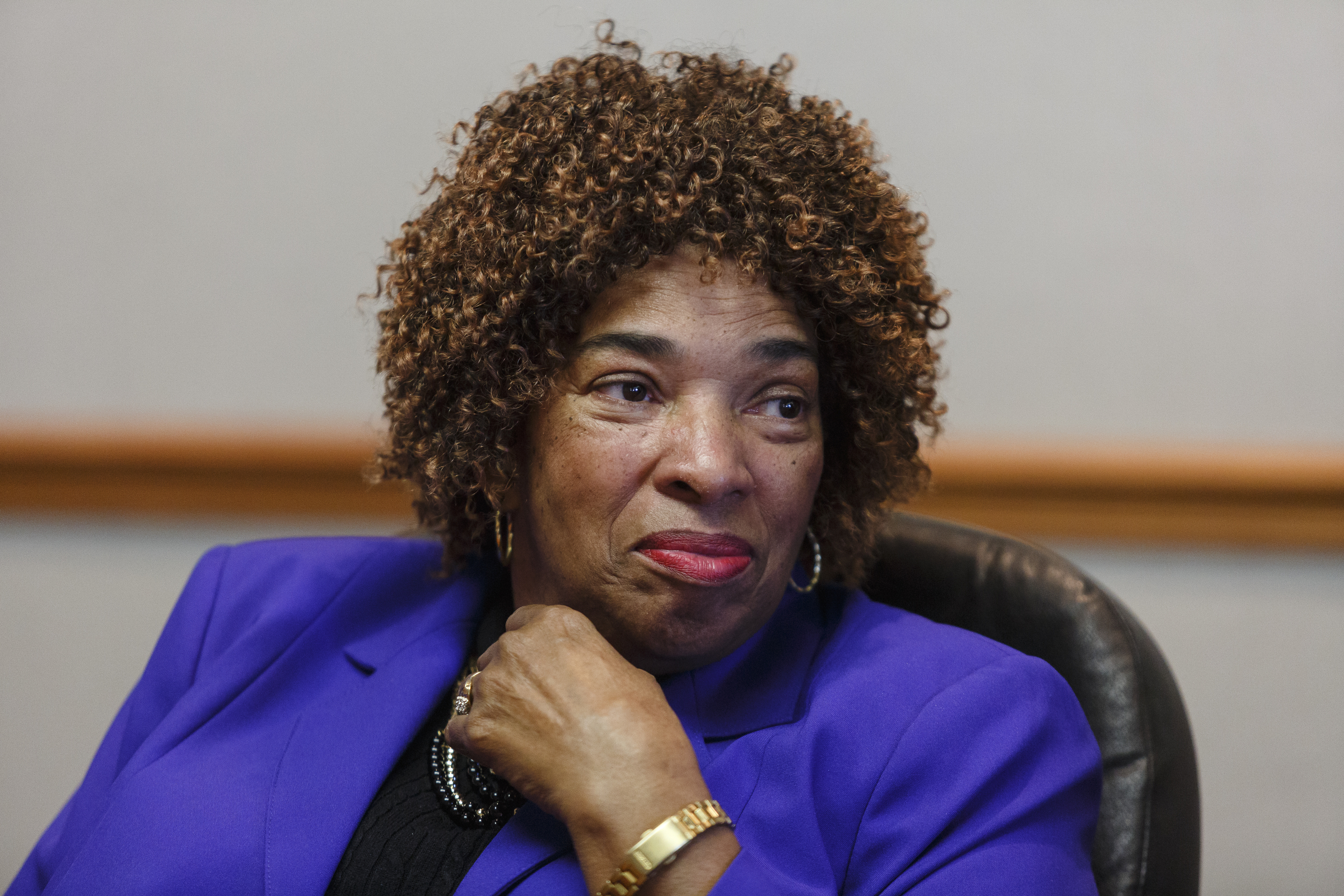NASHVILLE - Rep. JoAnne Favors hopes changes she intends to make to her school bus seat belt bill will help soothe cost concerns and ease passage in a key House panel this week.
The Chattanooga Democrat amended her bill to remove a requirement that all Tennessee school buses be equipped with safety restraint systems by July 1, 2023.
Instead, only buses bought new by schools and private contractors would be required to have seat belts. Dealing with the issue through attrition should bring costs down significantly.
Favors introduced her bill after six Woodmore Elementary students died and many were injured in a school bus crash on Talley Road. The driver faces criminal charges.
Favors said she plans to present the amendment Wednesday when her bill is scheduled to come before the full House Transportation Committee.
"I think most people are agreeable to this," Favors said. "I'm hoping, hoping, to avoid the summer study."
"Summer study" often is simply a device to get an issue off lawmakers' desks for the year with no actual study or hearings really planned or conducted.
Favors said she needs legislative analysts' new cost estimates on her proposed amendment before she presents the bill to Transportation Committee members.
Another proposed amendment would shift the deadline for new buses to be equipped with seat belts from mid-2018 to mid-2019 to give officials more time to prepare.

Fiscal Review analysts' initial cost estimates last month dealt the lawmaker's original bill a blow. The state's cost was projected at about $58 million, or $11.47 million annually over five years. Local costs were estimated at about $423.4 million, or a little more than $70 million a year over six years.
Analysts said requiring National Transportation Safety Board-approved safety restraint systems would add an additional $10,000 to the estimated $100,000 cost of a new bus. The buses also would have fewer seats.
But the kicker was that retrofitting existing buses with seat belts wouldn't work because they aren't constructed to handle them. As a result, the 79 percent of Tennessee's estimated 9,112 public and private school buses that don't have restraints would have to be replaced before the July 1, 2023, deadline.
The fiscal note estimated about 600 school buses are replaced annually in Tennessee.
Favors' bill cleared the House Transportation Subcommittee last month despite reservations from some members over costs and other concerns.
Testifying in support were two pediatricians from T.C. Thompson Children's Hospital at Erlanger who were on duty on Nov. 21 when injured and dying children began flowing into the emergency room from the crash.
While the NTSB hasn't issued its report on the crash, the physicians believed restraints would have helped prevent a number of major injuries.
"I truly believe that the pain of those families and suffering of their children could have been prevented or lessened," Dr. Alan Kohrt, a pediatrician and chief medical officer at Children's Hospital at Erlanger, told the panel.
The mother of a child who died in the crash sat in the audience along with several other parents of children who were injured but survived. Families intend to return this week.
In an interview earlier this year, Wayne Miller, executive director of the Tennessee Organization of School Superintendents, said he saw a need to ensure "that everybody's clear on where the liabilities are and what the costs are and what the bus companies are saying in regards to what's an appropriate fit and what's not an appropriate fit."
Miller said he'd talked with some people who oppose retrofitting buses, adding, "and you know the complexities of independent contractors versus those districts that own their own buses."
"Obviously you want kids safe," Miller said. "There's conversation about other types of accidents on buses where they've caught fire and how dangerous is it to have kids on there who are strapped in. Certainly that's a valid question, because school buses fires are more likely than school bus crashes."
Many of the concerns about having children strapped in and unable to escape after a mishap were cited in the subcommittee debate. Concerns also were raised about how to ensure children would actually use the seat belts.
Chattanooga police say the crash occurred when driver Johnthony Walker, 24, was speeding on Talley Road and lost control, crashing the bus carrying 37 Woodmore students.
Walker worked for Durham School Services, which has a contract with Hamilton County schools. He was later indicted on six counts of vehicular homicide and reckless driving.
Durham faces multiple civil lawsuits in connection with the crash.
Favors has a separate bill, also scheduled to be heard Wednesday, that raises the minimum age requirement for school bus drivers from 21 to 25.
But Gov. Bill Haslam has his own legislation that avoids the seat belt issue entirely. Instead, it focuses on training and oversight. The governor's bill is ahead of Favors' in the legislative process and is scheduled to be heard by the House Budget Subcommittee on Wednesday.
Haslam's bill requires each public local education agency or public charter school that provides or contracts for transportation services to have a specially designated supervisor responsible for monitoring and overseeing the operation.
The bill also requires the supervisor to complete a specially designed training program to be designed by the state Departments of Safety and Education. Following that, the supervisor is required to undergo a minimum of at least four hours of annual training.
All new school bus drivers would have to complete a school bus driver training program based on standards established by the Education and Safety departments. Training must be completed before a new bus driver transports students.
Like Favors' second bill, Haslam's would raise the minimum age for school bus operators from 21 to 25.
In the past, officials at the national level had said the compartmentalization of school bus construction provided adequate safeguards.
But in recent years, the NTSB and the head of the National Highway Traffic Safety Administration have called on school buses to be equipped with three-point seat belts.
Contact Andy Sher at asher@timesfreepress.com or 615-255-0550. Follow on twitter @AndySher1.

